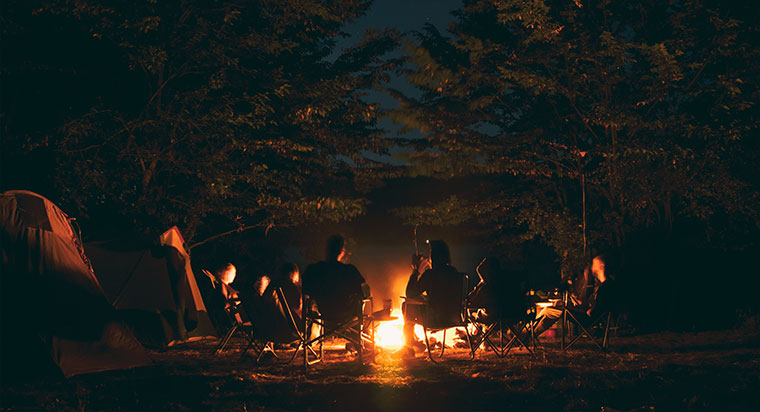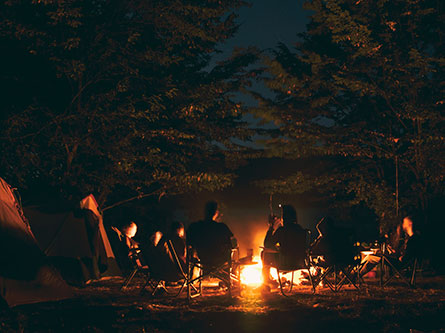
As the warmer months move in, people tend to spend their time outside. Summertime activities should be exciting but safe. Knowing how to safely enjoy camping, grilling, and the Fourth of July can help prevent burn injuries.
Fireworks safety tips
Burns from fireworks can happen in seconds. It's important to be aware of your surroundings while using fireworks.
Handling fireworks safely and with the proper precautions can help prevent accidents. The safest way to experience fireworks is to let the professionals handle them.
If you choose to use legal fireworks, here are some safety tips:
- An adult should be present when lighting fireworks.
- Don't hold lighted fireworks in your hands.
- Never light fireworks indoors.
- Read and follow the directions on the fireworks label.
- Put used fireworks in a bucket of water before throwing in a trash can.
- Have a bucket of water and a hose nearby to quickly put out fireworks if needed.
Here are safe options without flames include:
- Glow sticks instead of a sparkler. Sparklers heat up to 1,200 degrees F. They can cause third-degree burns.
- Noisemakers to make a statement in place of loud fireworks.
- Silly string, poppers, or colored streamers for extra fun.
BBQ safety tips
July is the peak month for grill fires. Keep children and pets a safe distance from the grill by creating a 3-foot zone around your grill. This can help prevent children from tripping and falling into cooking fires. And never leave a fire unattended, even for a few minutes.
Here are other safety tips when using your barbecue:
- Propane, charcoal, and wood pellet barbecues should be used outside only.
- Your grill should be at least 3 feet from the house, deck rails, and away from roof eaves.
- Always open your gas grill before lighting it.
- Never use gasoline as a starter fluid or accelerant or on hot/warm coals. This could cause an explosion.
See 9 grilling tips to help avoid health dangers
Campfires safety tips
Sitting under the stars and roasting marshmallows over an open flame can be a lot of fun. But mishaps can cause burn injuries.
Every year, campfire accidents send thousands of people to emergency departments with burn injuries. These tips can help keep you and your family safe around campfires:
- Campfires need to be at least 25 feet away from tents, shrubs and anything that can burn.
- Don't start campfires on windy, dry days.
- Never leave the fire unattended. A spark can easily travel and catch something on fire.
- Watch children while the fire is burning. Make sure they don't play near a fire.
- Don't use gasoline or other flammable or combustible liquids.
- Keep a hose, bucket of water, or shovel and dirt nearby to put out the fire.
- If your clothes catch fire, stop, drop, and roll.
- When you're roasting marshmallows, help young children. Be aware that a heated metal skewer can cause burns
Read a burn survivor's warning about campfires after she was treated at our Burn Center
What is the best way to treat a burn?
If you or someone you know gets a minor burn, run it under cool (not cold) water for 20 minutes. Once the burn has cooled off, apply lotion, especially ones with aloe vera or moisturizer. This prevents drying and can provide some pain relief.
For a major burns, call 911 immediately. Run cool water over the burn until emergency responders arrive. New research shows patients have better outcomes if they do this within the first 3 hours of their injury.
View research on how 20 minutes of running water can help burn recovery
How we help burn patients
Our Burn Center provides care from the time of injury through the start of rehab. Our support does not stop when patients are discharged. We continue to offer resources and support groups to our patients, families, and loved ones.
Peer support groups help those affected by similar emotional and physical pain from a burn injury. It helps our patients know they're not alone in their journey.
See how we've helped burn patients across Northern California for the last 50 years
This blog was written by Lauren Spink, outreach coordinator at the UC Davis Firefighters Burn Institute.




